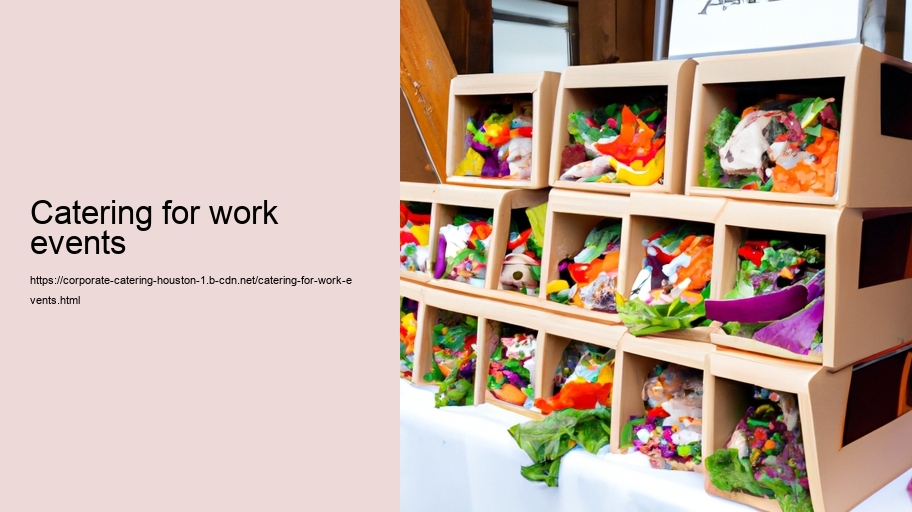Catering for work events is an essential aspect of corporate culture that serves not only as a means to feed participants but also as a vehicle to facilitate communication, enhance productivity, and showcase the company's hospitality. In this essay, we will delve into the significance of catering in the context of workplace gatherings, explore various considerations for planning such services, and discuss how it influences both the atmosphere and outcome of professional events.
The role of catering at work events extends far beyond simply providing sustenance. It plays a pivotal part in setting the tone for a gathering, whether it be a celebratory occasion like a company milestone or achievement, or more formal instances such as conferences, training sessions, and board meetings. The choice of food and its presentation can reflect an organization's values and attention to detail while creating an environment conducive to networking and collaboration.
When planning catering for any work event, organizers must carefully consider their audience. This includes being mindful of dietary restrictions (e.g., vegetarianism, veganism, gluten-free requirements) and cultural preferences which show respect for diversity among employees and guests. Furthermore, selecting menu options that are thoughtfully prepared with healthful ingredients can contribute positively to attendees' energy levels and cognitive function throughout an event.
The format of service is another critical consideration when arranging catering for corporate functions. Buffet-style setups encourage mingling and conversation among participants; whereas seated dining might be appropriate for more formal gala dinners or award ceremonies where there is a focus on speeches or presentations. Cocktail receptions with hors d'oeuvres allow for fluid movement and casual interaction ideal for networking-oriented events.
Logistics play a vital role in ensuring seamless catering service delivery. Timely coordination with caterers guarantees that meals are fresh when served and aligns with the schedule of activities during the event. This logistical foresight prevents disruptions in service which could detract from attendees' experience or interrupt key moments within the program agenda.
In today’s increasingly digital world where virtual meetings have become commonplace due to convenience or necessity (as seen during global situations like pandemics), even remote work gatherings may incorporate elements of shared culinary experiences through innovative solutions such as delivering meal kits or vouchers to participants ahead of online events.
Moreover, sustainable practices are becoming integral to event planning narratives globally. Companies now prioritize caterers who source locally produced ingredients, minimize waste by accurate headcount estimation, use eco-friendly packaging materials if takeaway options are provided, and implement methods such as composting leftover food – actions that resonate well with environmentally conscious stakeholders.
In conclusion, catering is much more than just food provision at work events—it is about creating memorable experiences built around fellowship and engagement within professional settings. Thoughtful selection tailored to meet diverse needs demonstrates inclusivity; impeccable execution speaks volumes about organizational competence; while mindful practices reinforce commitment towards sustainability—all contributing factors making catered occasions successful components within broader business contexts. Catering not only feeds bodies but nurtures relationships—essential nourishment facilitating growth both on individual levels as well as collectively within enterprises seeking success in their respective industries.
